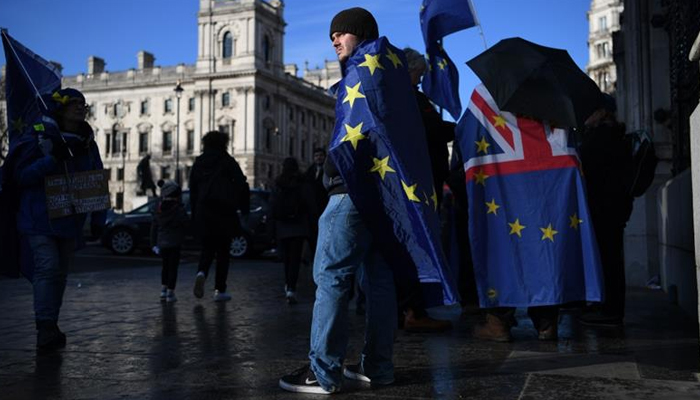Post-Brexit: What is UK’s new point-based immigration system?
According to EU laws, all European Union citizens can live and work in labour markets of any EU member state without an immigration process
January 27, 2021

For 45 years, the United Kingdom, along with Germany and France, remained an important player in the European Union bloc. But in recent years, an anti-EU sentiment started to gather steam, pushed by nationalists, anti-globalists and Eurosceptic parties.
As a result, a referendum was held in 2016 to decide if the UK should remain a member of the European Union or leave. Quite unexpectedly, the UK voted against remaining in the bloc.
The procedure for withdrawal from the EU has been elaborated in Article 50 of the Treaty of Lisbon, which the British government initiated by triggering on March 27, 2017.
As per the procedure, the withdrawal should have been accomplished within two years, therefore by March 27, 2019. But premier Theresa May failed to get the withdrawal agreement passed from the House of Commons thrice, and consequently obtained an extension from the EU.
For now the UK has been granted a transit period to completely alienate itself from the EU. Meanwhile, negotiations between Britain and the bloc are ongoing, centered on four key areas of discussion: future of the EU citizens in the UK and vice versa, financial obligations of the UK towards the EU, a trade deal and the settlement of border affairs between the Republic of Ireland and Northern Ireland.
Still, the most difficult discussion would be around the policy of immigration.
According to the EU laws, all European Union citizens can live and work in labour markets of any EU member state without an immigration process. No EU country is allowed to exercise travel restriction tools like visa requirements, work permits, quotas or any other immigration restrictions on EU nationals.
Presently, there are about three million Europeans living in the U.K. while about one million British citizens are residing in the Union.
Perceiving the restricted scenario of immigration after Brexit, a large number of semi-skilled EU nationals, especially from Eastern European countries, have rushed to the UK to settle before Brexit becomes effective, since the eight Eastern European countries (called the A8 group), which joined the EU in 2004, have a high ratio of unemployment.
But the mass migration has nationalists in the United Kingdom outraged, who worry that the controllable immigration system would diminish jobs for UK citizens in their own country. That is why, recently, voices in favour of a restrictive immigration system in the country have increased.
As a result, the UK government drafted a new immigration policy, which came into effect this month. Under the policy, all European nationals will be required to possess a European Temporary Leave to Remain (Euro TLR), for their stay in the U.K. beyond three months.
The government also aims to start a Settlement Scheme for EU nationals staying in the UK to legalise their stay after Brexit. It has further been proposed that all semi-skilled EU nationals will only get a temporary residence visa, while highly-skilled nationals will be granted permanent residency visas.
However, Irish citizens will be granted special relaxation in this matter to give honor to the Good Friday Agreement signed between the UK, Northern Ireland and Republic of Ireland in 1998.
Another possible problem during the Brexit negotiations will be the issue of Northern Ireland. Currently, goods and services traded between Northern Ireland and the Republic of Ireland face few restrictions and are not inspected at the border for customs.
This was only possible due to the UK being part of the EU single market. However, after exiting the Union, trade across the Irish border will become difficult. A solution to this has been proposed in the form of agreement called the “Irish backstop”, signed in 2018 between the UK and the EU, which suggests maintaining a soft border between the two jurisdictions, Northern Ireland and the Republic of Ireland.
The new Brexit immigration policy will also have a deep impact on the British health care system, as previously a large chunk of British medics, doctors and nurses had come from the European countries taking advantage of the easy immigration policies of the European Union.
Sports is another arena that will be waiting patiently to see how Britain maps out its new immigration policy. The EU sportsmen playing in different clubs and departments of the UK will require a visa after Brexit.
As of now, the new UK immigration system is based on points, where those applying will be awarded points based on their educational qualification, job experience, annual pay, and even their ability to speak English, amongst other things.
To qualify for a British work visa, migrant workers will have to qualify for 70 points at least. But how immigrants, hoping to work in the UK, respond to the new system remains to be seen.
Shifa Ullah is an Islamabad-based immigration and passports officer. He can be reached at [email protected]











